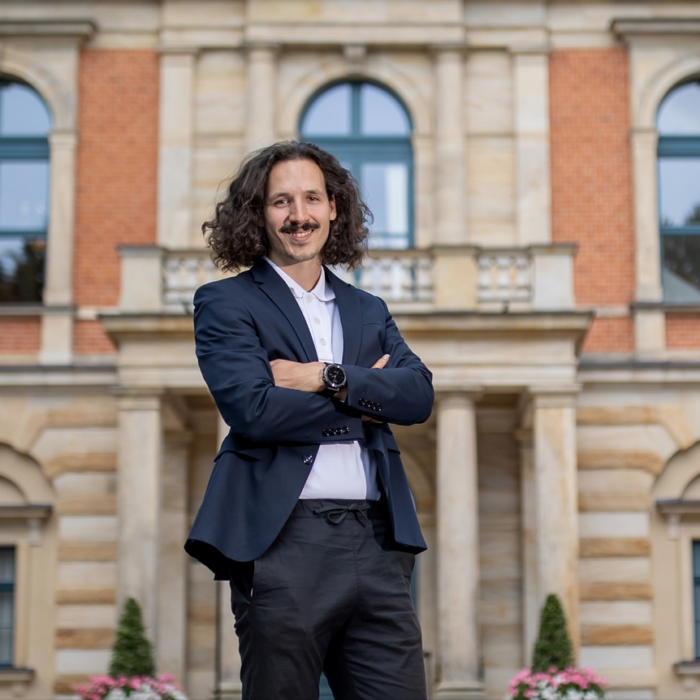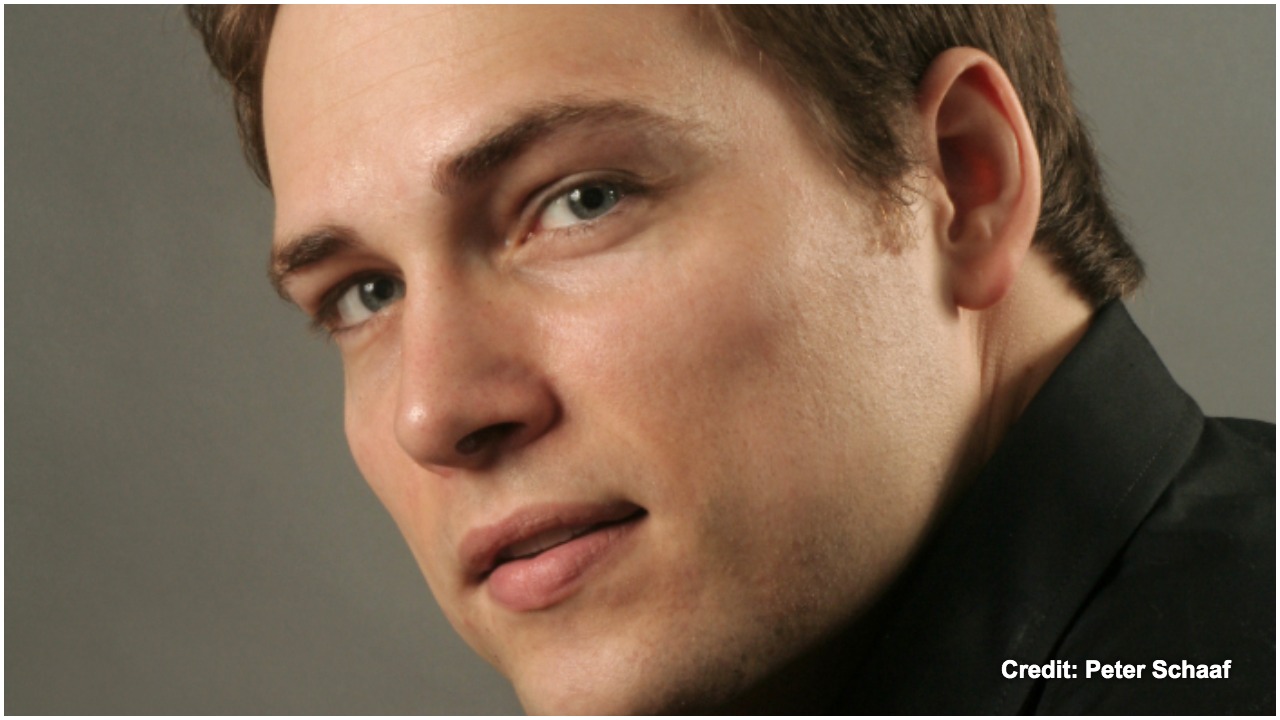
Q & A: Karim Sulayman on His Role in the Premiere of David T. Little’s ‘What Belongs to You’
By Afton Markay(Photo credit: Erin Baiano)
GRAMMY-winning tenor Karim Sulayman, the star of David T. Little’s new monodrama,“What Belongs to You” spoke with OperaWire about undertaking this uniquely challenging role, and working with the close-knit creative team.
“What Belongs to You” is based on Garth Greenwell’s debut novel of the same name. He describes it as “the story of a man caught between longing and resentment, unable to separate desire from danger, and faced with the impossibility of understanding those he most longs to know,” and as “the search for self and the desire to belong amidst loneliness and enduring heartbreak.”
The world premiere will take place at the Modlin Center for the Arts in Richmond, VA on Sept. 26 and 28.
OperaWire: Can you describe the plot of “What Belongs to You?”
Karim Sulayman: At its core, it’s the story of an American living in Bulgaria who’s teaching English. He seeks out what some may describe as “dirty” sex. He becomes infatuated with this “hustler”, Mitko and they start a relationship. I should say that the relationship it’s not to be interpreted as they are in a romantic relationship, it’s mostly transactional. The relationship becomes violent and he (The American) begins to spiral. That’s in Act one. From here, the story exposes our behaviors around desire, shame, and trauma.
OW: Tell me about your experience of playing the sole character, “The American?”
KS: This guy doesn’t have a name, he even says, “my name is unpronounceable”, and so it’s interesting that Mitko becomes the focus and more humanized. Mitko is the only named character in the entire narrative, everybody else that he talks about is “my father”, or he gives initials to all the others. His first love is called “K”, and the lover that he has in part three is called “R”. The story is told from the first person, but I still have to make these other characters he mentions real. So, there are moments where I feel like I’m playing all the characters. Also, everybody in this piece isn’t particularly likable. But, I think that helps us understand a lot of what it means to have shame around our desire and around who we end up being. The role is an invitation into this guy’s thoughts. It’s all very internal but at the same time it’s this person’s deepest and most private thoughts that become public consumption.
I’ve never had anything quite like this. It is a huge undertaking emotionally, dramatically, and physically. Vocally it’s just huge. There’s 90 minutes and it’s just me, except for two musical interludes, which are about 40 seconds each.
OW: How does David T. Little’s score express the complexity of the character or characters?
KS: David talks about how it was clear to him that this is a musical piece when he read it the fist time. For me when I read it even though there’s something very musical about the way Garth writes text, I didn’t equate it opera. Because it’s written in the first person, I think it’s really cool how David took something that could seemingly just be a guy talking and instinctively knew it could be this highly theatrical piece. David writes a lot of motifs that your ear will immediately latch onto. It makes the storytelling from a musical standpoint easier for an audience hearing a new work.
In part two, I feel like that’s some of the most inspired new music that I’ve ever heard. It’s really incredible. And the scene is incredible. It’s during the first flashback to his dad when they are out on this farm, here the orchestra is playing their own instruments but they’re also playing wood blocks and croakers and shakers, so it really feels like you’re outside hearing the bugs and all of those sounds.
OW: What is it like working with new music?
KS: What’s exciting about new music is that you’re all discovering it together and you get to test boundaries. When you’re dealing with a new piece, it’s always hard to gauge where the real challenges are until you actually do the thing. David is very collaborative and is open to suggestions, so a few things got changed along the way. We did things in and out of context and were able to fine tune things where need be.
OW: Why is “What Belongs to You” an important story to tell?
KS: It sheds light on a certain kind of gay man whose story does not get told often. One whose sexual awakening in the 90s and early aughts went hand in hand with shame and anxiety. Our sexual education often came with threats of death because of what was happening during the AIDS epidemic. And we witnessed so many older men die with such little understanding and an unwillingness to speak about things openly. That forced so many young gay men into fear of what they were — we see that in almost every generation of gay men. So there’s that important and underlying element to the story, but despite that, it also tells of the discovery of oneself in the midst of an unconventional relationship, and a journey into understanding one’s trauma and personal history, which, I think, many people can understand.
OW: Is there an advantage to telling that story through opera?
KS: Even though it’s one person and maybe not as theatrical in the way that one might expect an opera to be, it really gets the story across. It is so psychological and internal, but is mixed with moments of pure full-throated expression which is very operatic, it just works in this setting.
David and Garth both, just love opera and they feel very comfortable with the genre. Yet, at the same time he is pushing boundaries of what opera is and how it should be defined. I think the music can help us understand the layers of the story. The way he uses certain sounds to represent certain feelings, it brings these emotions to the front and people can really relate to the rich text.


